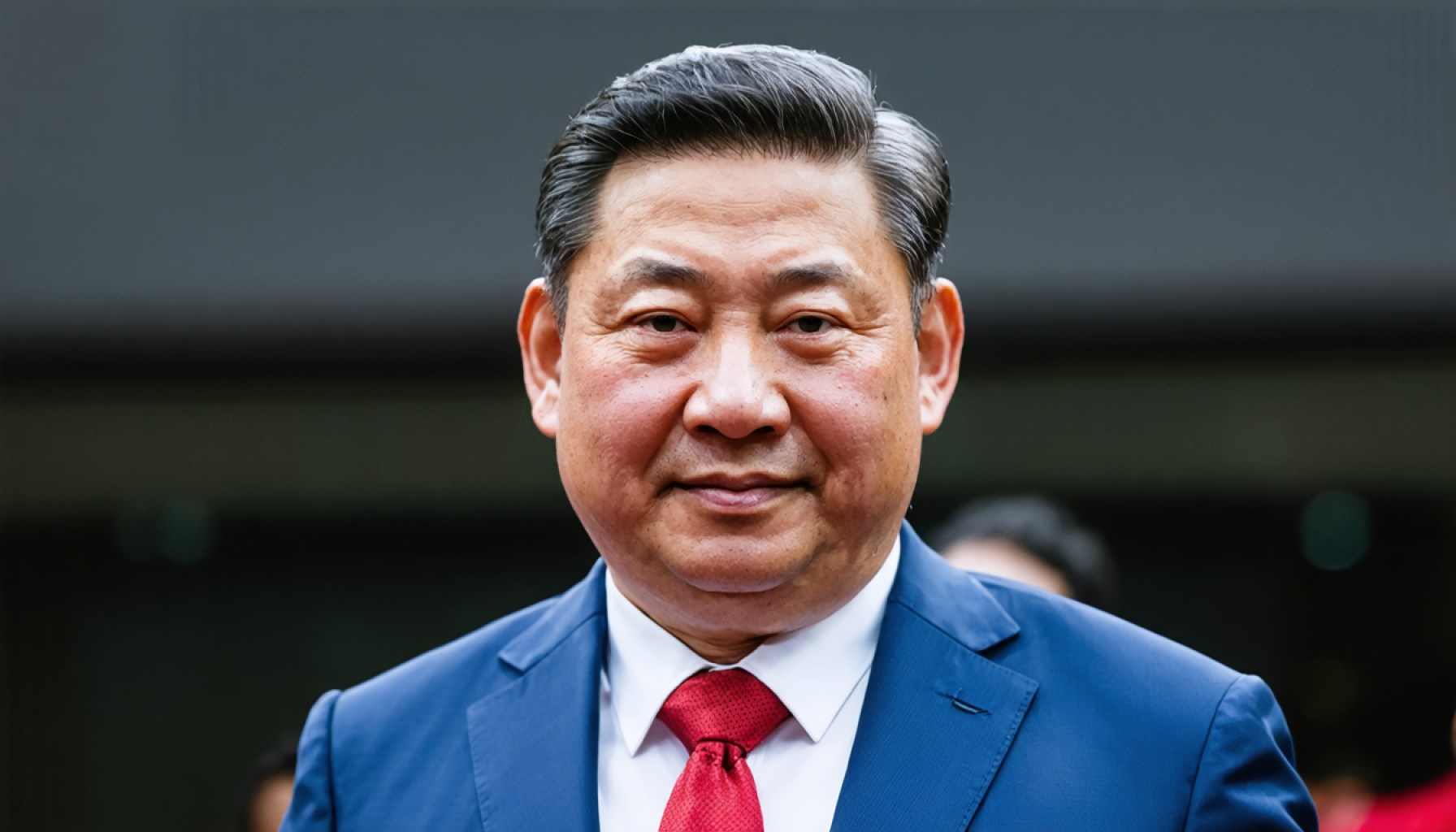- Prominent Chinese political figure Jiang Chaoliang is under investigation for serious disciplinary violations and alleged legal infractions.
- Jiang has held influential positions, including governor of Jilin Province and party secretary in Hubei, and is currently Vice Chairman of the Agricultural and Rural Affairs Committee.
- The investigation, announced by the Central Commission for Discipline Inspection and the National Supervisory Commission, highlights the party’s focus on anti-corruption.
- This case reflects the Chinese leadership’s emphasis on accountability and stability within its governance structures.
- The situation underscores the intricate and closely monitored nature of political life in China.
A new wave of intrigue and scandal ripples through the corridors of power in China as Jiang Chaoliang, a well-known political figure, finds himself at the center of a major investigation. Born in August 1957, Jiang has held significant leadership roles, serving as the governor of Jilin Province and later steering the ship as the party secretary in Hubei. His current position as the Vice Chairman of the Agricultural and Rural Affairs Committee for the National People’s Congress marked him as a key player in shaping China’s rural policies.
However, recent developments have cast a long shadow over his illustrious career. News released by the Central Commission for Discipline Inspection and the National Supervisory Commission announced that Jiang is under scrutiny for grave disciplinary violations and alleged legal infractions. Such announcements often send ripples of tension through the tightly knit circles of Chinese governance, where stability and adherence to party codes are valued above all else.
This unfolding saga provides a glimpse into the stringent vigilance maintained by the party to uphold integrity within its ranks. While the details of the violations remain undisclosed, the process underscores a broader narrative: the central authorities’ unwavering stance on rooting out corruption. This high-profile investigation reiterates a crucial message—leadership without accountability is unsustainable.
As audiences across the globe digest this unfolding story, it offers a stark reminder of the complexities of political life in one of the world’s most powerful nations, where each move is scrutinized under the vigilant watch of the party.
Scandals in Chinese Leadership: What Jiang Chaoliang’s Investigation Reveals About China’s Political Landscape
How-To Steps & Life Hacks: Understanding China’s Political Disciplinary Process
1. Familiarize with Key Institutions: Learn about the Central Commission for Discipline Inspection (CCDI) and the National Supervisory Commission, the primary bodies overseeing discipline and anti-corruption within the Communist Party of China (CPC).
2. Recognize the Process: Understand that investigations typically begin with a formal announcement, followed by an in-depth inquiry which may lead to legal proceedings if evidence of misconduct is uncovered.
3. Research Case Outcomes: Review past cases to understand potential outcomes, which can range from dismissal, demotion, or expulsion from the party, to criminal charges depending on the severity of the infractions.
Real-World Use Cases: Impact of Political Scandals on Governance
Political scandals like Jiang Chaoliang’s investigation can have a ripple effect on governance and policy direction in China. Key areas impacted include:
– Rural Policy Adjustments: As Jiang was pivotal in shaping agricultural policies, his investigation might influence shifts or delays in ongoing rural development projects.
– Political Climate: A high-profile investigation might lead to a temporary increase in political oversight across governance levels, impacting decision-making processes.
Market Forecasts & Industry Trends
– Policy Uncertainty: Ongoing investigations can create policy uncertainty, affecting investor confidence and market stability, particularly in sectors closely tied to government directives such as agriculture.
– Increased Scrutiny: Expect heightened scrutiny across industries as the government demonstrates its commitment to anti-corruption, influencing corporate governance practices and compliance requirements.
Reviews & Comparisons: Anti-Corruption Campaigns Globally
China’s approach to political discipline can be compared with other countries’ anti-corruption initiatives. For instance:
– United States: Investigations are often driven by independent judicial processes and are more transparent compared to China’s internal party investigations.
– Russia: Anti-corruption efforts may be perceived as politically motivated rather than transparency-driven.
Controversies & Limitations
– Transparency Issues: Criticism arises over the opacity of the process, with details often kept under wraps, which can lead to speculations and potential misuse for political reasons.
– Political Motivation: There is often debate over whether certain investigations are politically motivated rather than purely disciplinary.
Features, Specs & Pricing: The Cost of Political Integrity
While the “cost” of upholding political integrity in China isn’t easily quantifiable, it encompasses maintaining political stability, public trust, and international perception.
Security & Sustainability
The sustainability of anti-corruption campaigns depends heavily on:
– System Reforms: Implementing long-term systemic changes rather than short-term punitive measures.
– Public Confidence: Building genuine trust among the populace that investigations are fair and just.
Insights & Predictions
– Short-term Impacts: Increased discipline within the CPC as officials become more vigilant.
– Long-term Reforms: Possible strengthening of policies related to political transparency and corruption prevention.
Tutorials & Compatibility
To understand how these political processes function:
– Political Systems Study: Engage with academic resources and publications about China’s political system.
– Expert Analysis: Follow thought leaders and political analysts who offer insights into China’s governance.
Pros & Cons Overview
Pros:
– Demonstrates commitment to integrity.
– Potentially deters future corruption.
Cons:
– Lack of transparency can undermine public trust.
– Risk of political agendas influencing outcomes.
Actionable Recommendations
1. Stay Informed: Keep abreast of developments in Jiang Chaoliang’s case to understand its impact on Chinese politics.
2. Engagement: Participate in discussions and forums focusing on global anti-corruption strategies.
3. Awareness: Use this knowledge to analyze and compare governance in different political frameworks globally.
For more information:
– Central Commission for Discipline Inspection
– National Supervisory Commission
